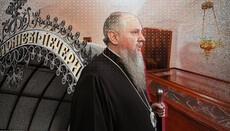Who will be the next Pope?
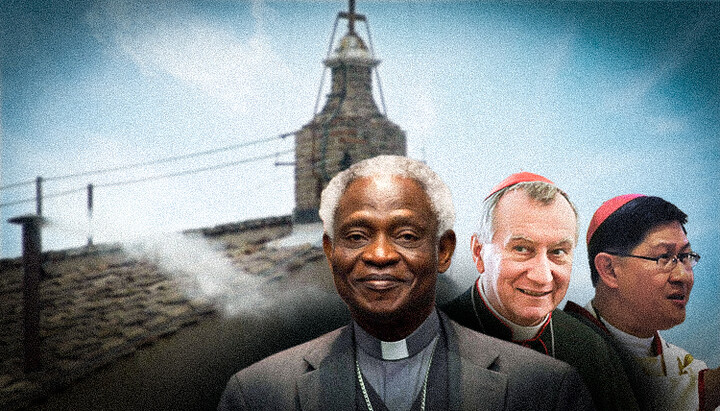
The choice of the new pope will not only affect the future policies of the RCC but also many political processes worldwide.
On May 7, the Conclave will begin in the Sistine Chapel – a closed meeting of the cardinals that will determine the fate of 1.3 billion Catholics. After the death of Pope Francis, the Roman Catholic Church faces a very difficult decision: whether to continue the course of reforms (support for LGBT rights, female clergy, and so on) or return to conservative Catholicism, based on Christian values.
In the previous article, we discussed how the Conclave works and outlined a rough profile of the future pope.
In this publication, we will highlight the key characteristics that will certainly be taken into account when choosing the new pope, and we will name six, in our opinion, key candidates whose names are being mentioned most frequently on the sidelines of the Vatican. We will tell you not only about their biographies, but also about the things that could decide the outcome of the vote.
What should the new pope be like?
The chances of cardinals becoming the new pope are influenced by several key factors, which come together in a complex and multifaceted decision-making system within the Conclave. Here are the main ones:
1. Age and candidate status. In theory, any Catholic man can become pope, but in practice, the selection is made from among the cardinals who are no older than 80. Age is very important here: the candidate should not be too young (to have experience and authority) but also not too old (to be able to rule for a reasonable amount of time).
2. Experience and reputation. Cardinals with extensive experience in church management, diplomacy, and the internal Curia have an advantage. An impeccable reputation and the absence of scandals are also crucial.
3. Political and ideological views. It is important to remember that the Vatican is not only a religious structure but also a political one. Cardinals will definitely consider the political views of a potential candidate. Support from certain factions within the Vatican (conservatives, moderates, reformers) will have a significant impact.
4. Nationality. Although there are no formal restrictions, traditionally, popes have been Italians or Europeans. However, recently, there has been a growing influence of cardinals from Africa, Asia, and Latin America, which indicates the gradual shift of the RCC toward the so-called "Global South".
5. Influence and support within the Curia and among the cardinals. It’s important to remember that the Conclave is not a parliament with clear factions but rather a temporary gathering in which new alliances, agreements, and parties can constantly form. Naturally, a candidate with the support of influential groups and orders has better chances.
6. Personal qualities. Unlike presidential elections, there are no debates during the Conclave. However, personal qualities such as the ability to avoid hasty or thoughtless statements, diplomacy, and the capacity for dialogue and compromise play a very significant role. Cardinals will certainly consider the candidate’s "track record", especially how he has behaved during crises.
7. A figure that satisfies the majority. The election of a pope often happens through the search for a compromise candidate. Sometimes, the strongest leaders don’t win; instead, those who can meet the demands of various factions within the Vatican emerge victorious.
8. Influence of world powers. Although the elections are officially independent, the interests of major countries and politicians who support certain candidates have a significant informal influence. For example, during the Conclave, it might be decided that maintaining good diplomatic relations with China or the United States is crucial.
Thus, the chances of a cardinal becoming pope depend on a combination of age, experience, political position, national origin, support within the Curia, personal qualities, and the ability to be a compromising leader capable of satisfying different factions.
Who could become the new Pope?
We present to your attention six of the most prominent candidates for the Vatican Throne, in our opinion.
1. Pietro Parolin: The Vatican's "Prime Minister"
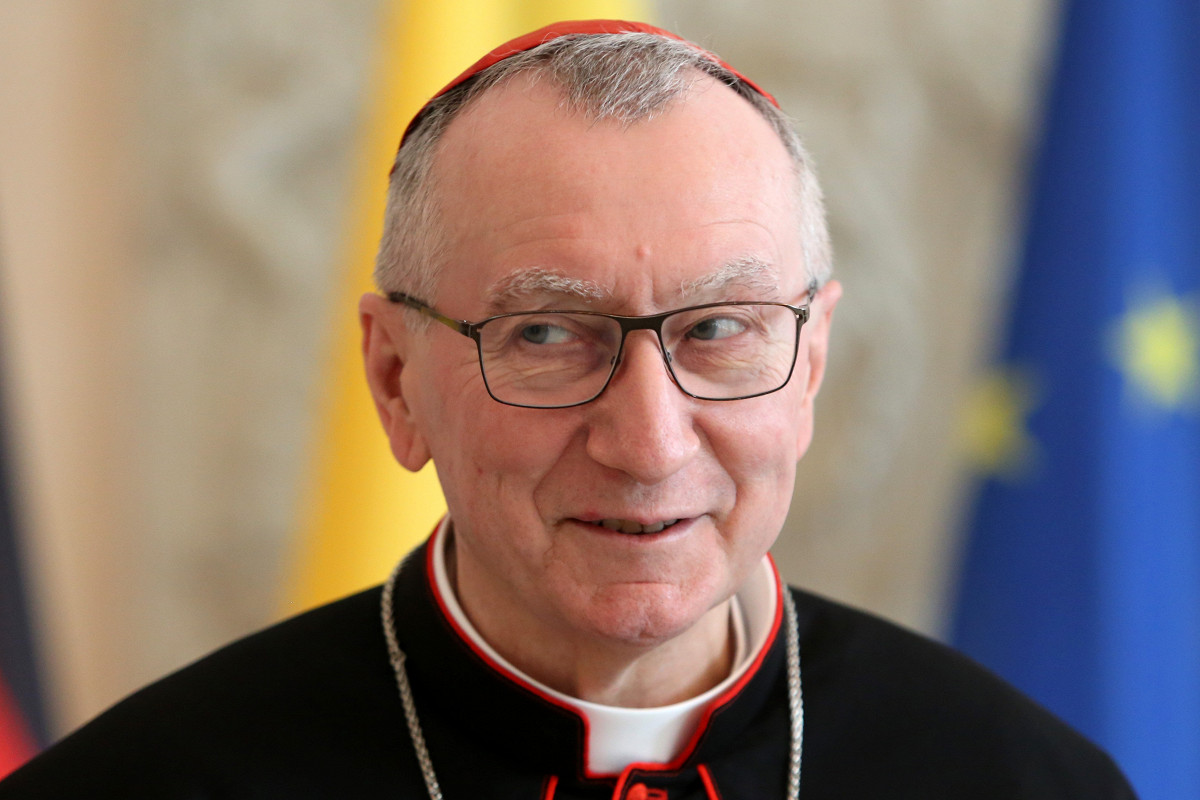
The 70-year-old Italian cardinal has held the position of Secretary of State of the Holy See for ten years – the second most important position after the Pope. If we draw parallels with secular governance, Parolin has been the "Prime Minister" under three pontiffs for decades. His main strength is his unprecedented experience in what is called Vatican international diplomacy. He was the one who appeared in Ukraine right after the Maidan revolution and was also in charge of crucial negotiations with China.
His strengths include support from the Curia (the Vatican bureaucracy) and cardinal-administrators, an ability to find compromises between conservatives and reformers, deep knowledge of the inner workings of the Vatican, where he has worked for 40 years.
There are weaknesses as well, and quite a few. Thus, Parolin is perceived by many as a “man of the system”, which is highly unpopular among those who seek reforms. He completely lacks charisma: his sermons are dry speeches typical of a bureaucrat, not those of a passionate orator. Additionally, there are rumors in the Curia that some cardinals are concerned about his excessive pragmatism in relations with powerful states (for instance, China has gained the ability to influence the appointment of bishops in its country).
Thus, we estimate Parolin's chances at about 35-40%.
2. Luis Antonio Tagle
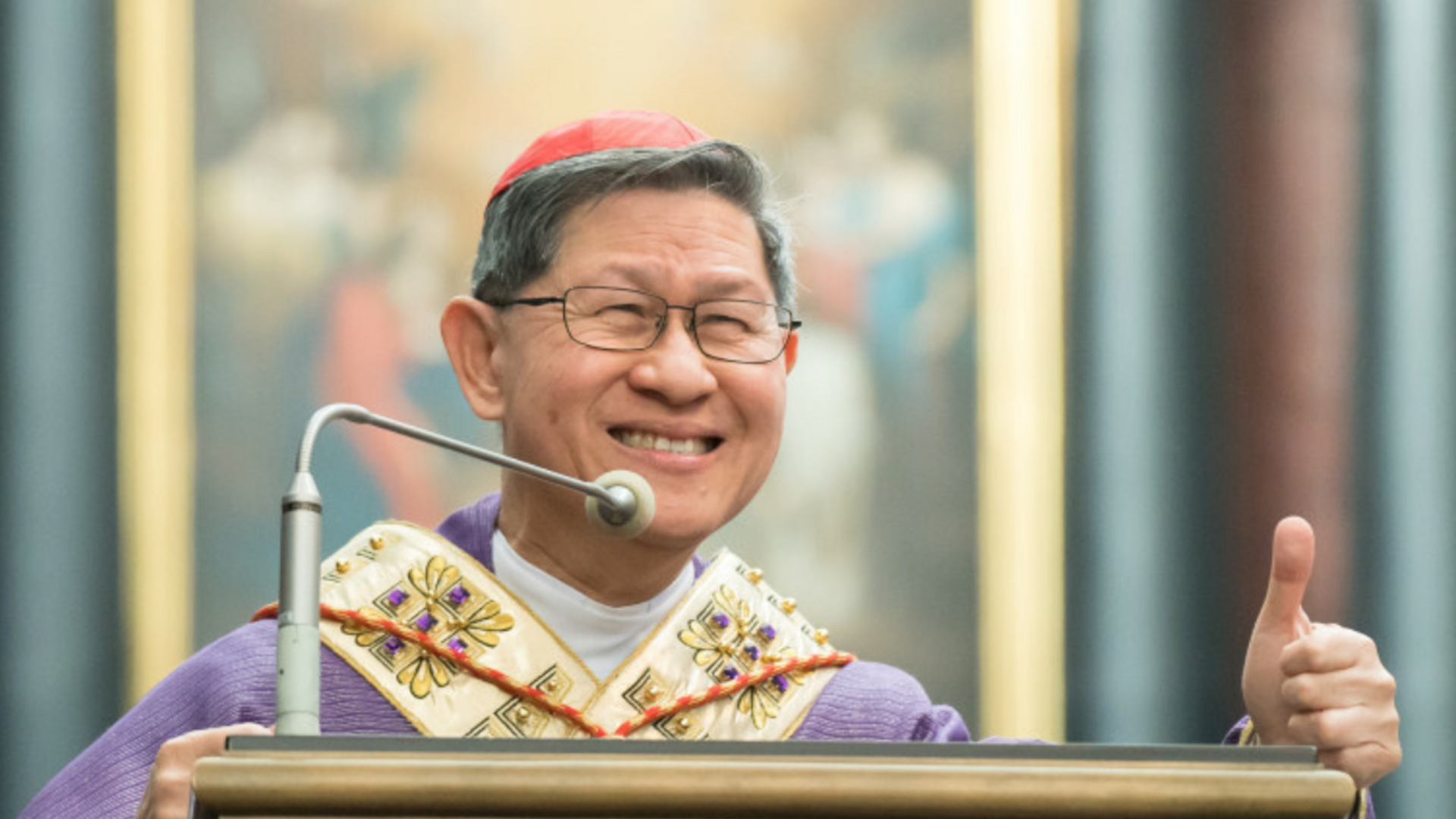
The 67-year-old Filipino cardinal heads the Congregation for the Evangelization of Peoples, which is responsible for missionary work. While Parolin represents the old generation, Tagle is the face of the "Global South". Born in Manila, he speaks six languages fluently and regularly criticizes the "Eurocentrism" of the Roman Catholic Church, calling for more attention to other regions.
Tagle’s strength is that he symbolizes the shift of the Catholicism center to Asia and Africa, where 60% of Catholic believers live. He is also known for his humility and modesty, as he lives in a small apartment instead of an archbishop’s palace. Additionally, he is considered very close to Pope Francis’ views, though he is cautious when it comes to making radical statements.
However, there are weaknesses as well. Tagle lacks experience in managing large European dioceses, and he has been accused of not being able to make tough decisions, with some calling him "soft-hearted". In particular, those who dislike him often mention his unsuccessful, or rather non-existent, response to the pedophilia scandal in Australia in 2018.
Thus, his election would be a sensation, as the last non-European pope (Pope Gregory III) reigned in the 8th century.
We estimate his chances at 35%.
3. Péter Erdő

The 72-year-old Hungarian cardinal, Archbishop of Budapest, is the main hope of the traditionalists. A respected expert in canon law, he has repeatedly and firmly spoken out against same-sex marriage and female priesthood. In 2015, he also criticized Pope Francis’s migration policy, stating that “the Church should not encourage Europe’s cultural suicide.”
Among Erdő’s strengths is the fact that he has considerable support from Eastern European and American cardinals. The hierarchy of the Roman Catholic Church also understands his stance clearly—there are no ambiguities, evasions, or liberal leanings. In addition, he has leadership experience as the former head of the Council of European Bishops' Conferences (2005–2011).
However, his weaknesses include a harsh leadership style, which led 40 Hungarian priests to demand his resignation in 2019. Erdő also has a rather negative image in the media, where he is often labeled a “reactionary”.
Thus, we estimate his chances of election at 10%.
4. Jean-Marc Aveline
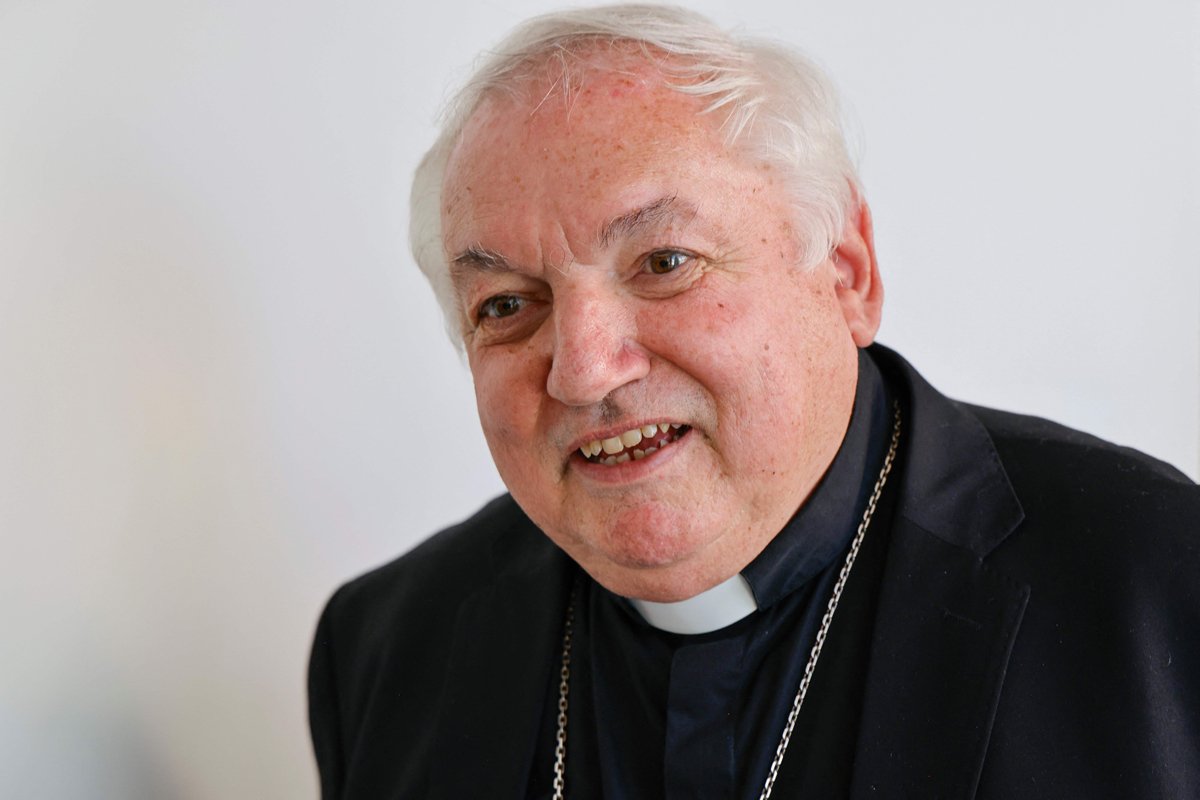
The 65-year-old Archbishop of Marseille is the youngest of the contenders. He is often called a “master of compromise” (fitting for a Frenchman) and someone who has managed to earn the trust of both liberals (he supports dialogue with Muslims) and conservatives (he firmly condemns euthanasia).
Aveline’s strengths include his ability to unite opposing factions. He is also very popular in French-speaking Africa, which is seen in the Vatican as a key region for the future growth of the Catholic Church. Additionally, he could introduce certain reforms appealing to many cardinals—for example, he has proposed changes to the system for appointing bishops.
But his weaknesses clearly outweigh his strengths. Aveline only received his cardinal’s hat in 2022, and he has almost no ties to Latin America, a region whose importance to the Catholic Church needs no explanation.
Therefore, his chances are extremely low – around 5%. However, Vatican insiders consider him the leading “backup option” in case the vote reaches a deadlock.
5. Pierbattista Pizzaballa
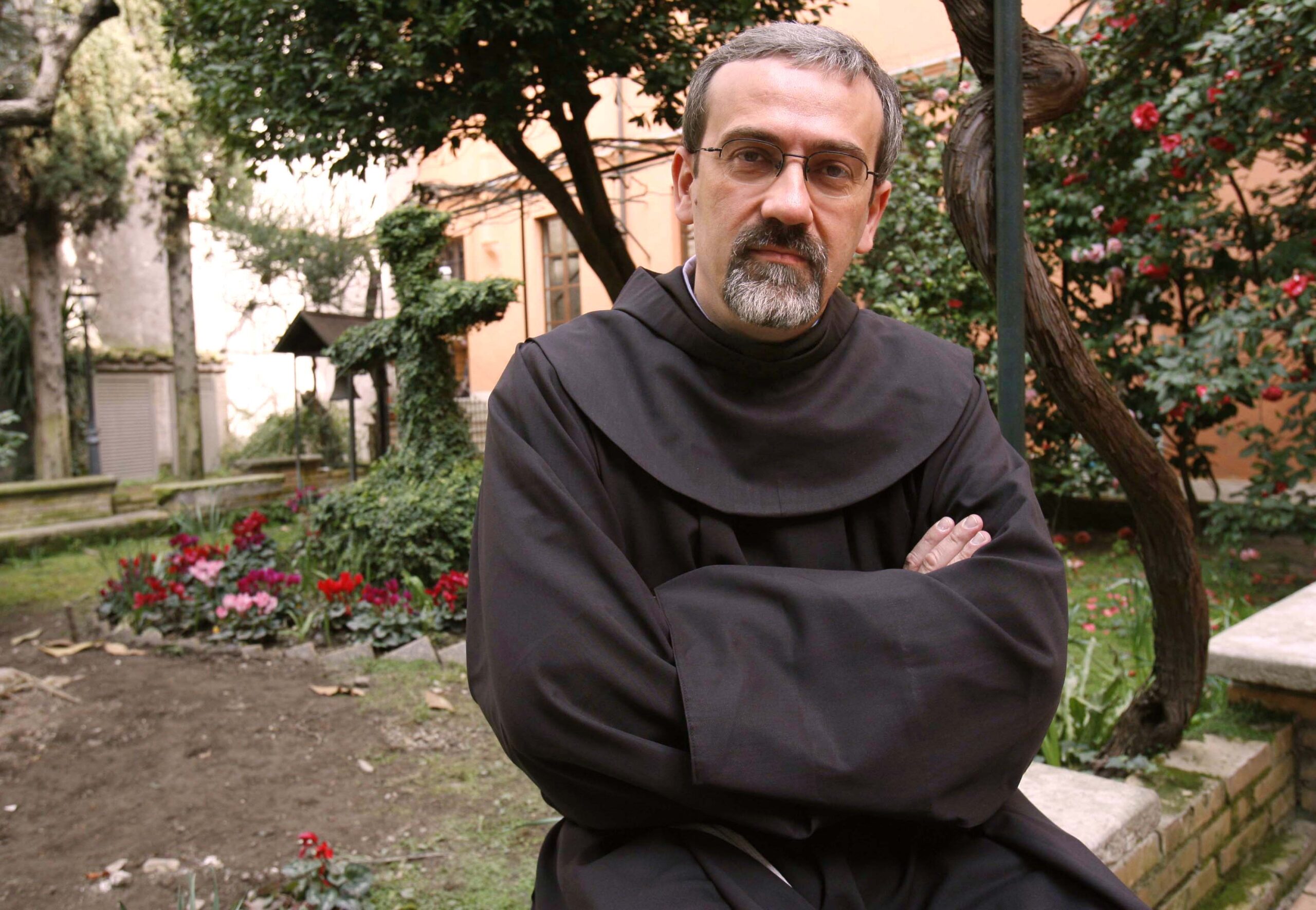
Pizzaballa is 60 years old. He is Italian (an ideal candidate) and a Franciscan. Since 2021, he has served as the Roman Catholic "Patriarch" of Jerusalem. Pizzaballa is considered an expert in interreligious dialogue, having spent 20 years in Israel where he established strong connections with Jewish and Muslim communities.
Among his strengths is his unique experience working in "hot spots"—from the Gaza Strip to Lebanon—and the constant support he provides to missionary orders and priests serving in the most difficult and dangerous areas. Additionally, Pizzaballa still rides his bicycle, a symbol of his simplicity and commitment.
However, in terms of weaknesses, Pizzaballa is seen as a "narrow specialist" without experience in managing large, complex structures. He is also not considered a public or media figure (with only 50,000 Twitter followers compared to Tagle’s 20 million).
Despite this, if Pizzaballa manages to present himself as a "candidate of peace" amid the conflicts in the Middle East, we estimate his chances at 10%.
6. Peter Kodwo Appiah Turkson
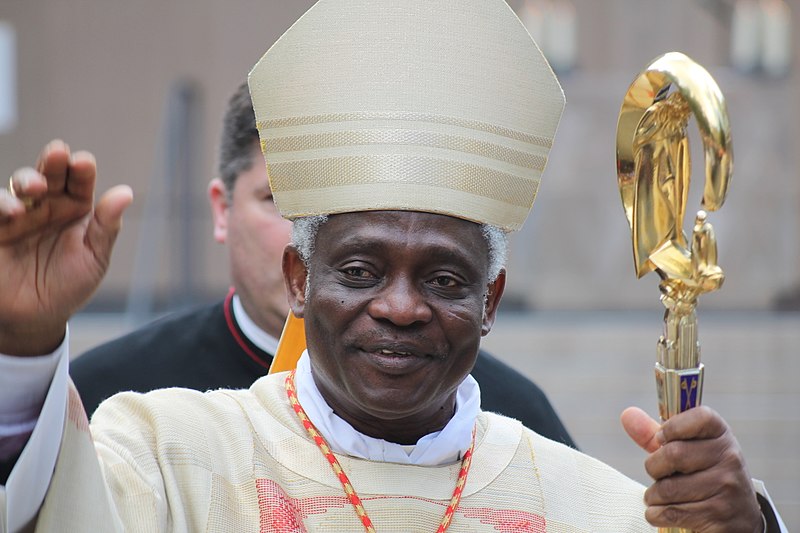
The 76-year-old Ghanaian prelate is considered one of the more prominent candidates for the papacy in the upcoming conclave. He served as the president of the Pontifical Council for Justice and Peace (2009–2017) and was the prefect of the Dicastery for the Promotion of Integral Human Development (2017–2021). Currently, he serves as the Chancellor of the Pontifical Academy of Sciences and the Pontifical Academy of Social Sciences.
Among Turkson’s strengths is Africa, which is home to 20% of the world’s 1.4 billion Catholics. At the same time, Turkson is highly active in matters of ecology and poverty, and his views align closely with those of Pope Francis. Additionally, he has built a solid reputation in interreligious dialogue, is considered a good administrator, and, with his fluency in English, French, Italian, German, Hebrew, Latin, and Greek, could be seen as a pope capable of negotiating on the international stage.
However, Turkson’s weaknesses include his age, 76 years old (though Pope Francis was elected at the same age). In 2013, Turkson was also considered a favorite, but he lost to the late Pope Francis. He also lacks strong support among European cardinals.
Thus, we estimate Turkson’s chances at between 15% and 20%.
What will decide the outcome of the election?
It is important to note that predicting who will become the next pope is extremely difficult. In the last three Conclaves, no one was able to correctly predict the name of the next pope before the election results were announced. We won’t attempt that either.
However, in our opinion, the key factors that will certainly shape the election are the battle between Europe and the "Global South", views on LGBT issues and female priesthood, as well as the pressure exerted by the United States, China, and the European Union.
In this sense, Pietro Parolin has the best chances, but Tagle and Turkson are close behind and could well win. And if we recall the 2024 film “The Conclave”, it is possible that the next pope will not be Pizzaballa or Aveline but rather someone whose name is currently unknown to anyone.
One thing is certain: this Conclave will be a turning point for the Roman Catholic Church. Because it’s not just a choice between Parolin and Tagle, but whether the Vatican will continue to represent “old” Europe, or whether an entirely new Church of the ‘global South’ will emerge on its “bones”.









